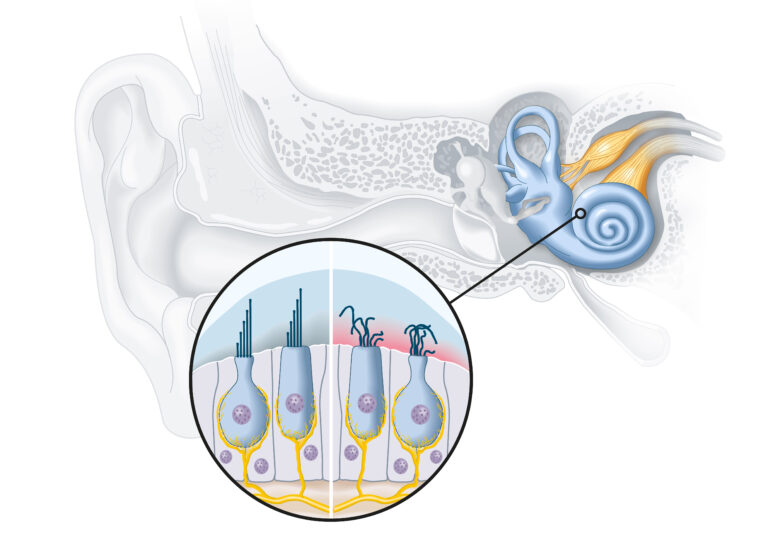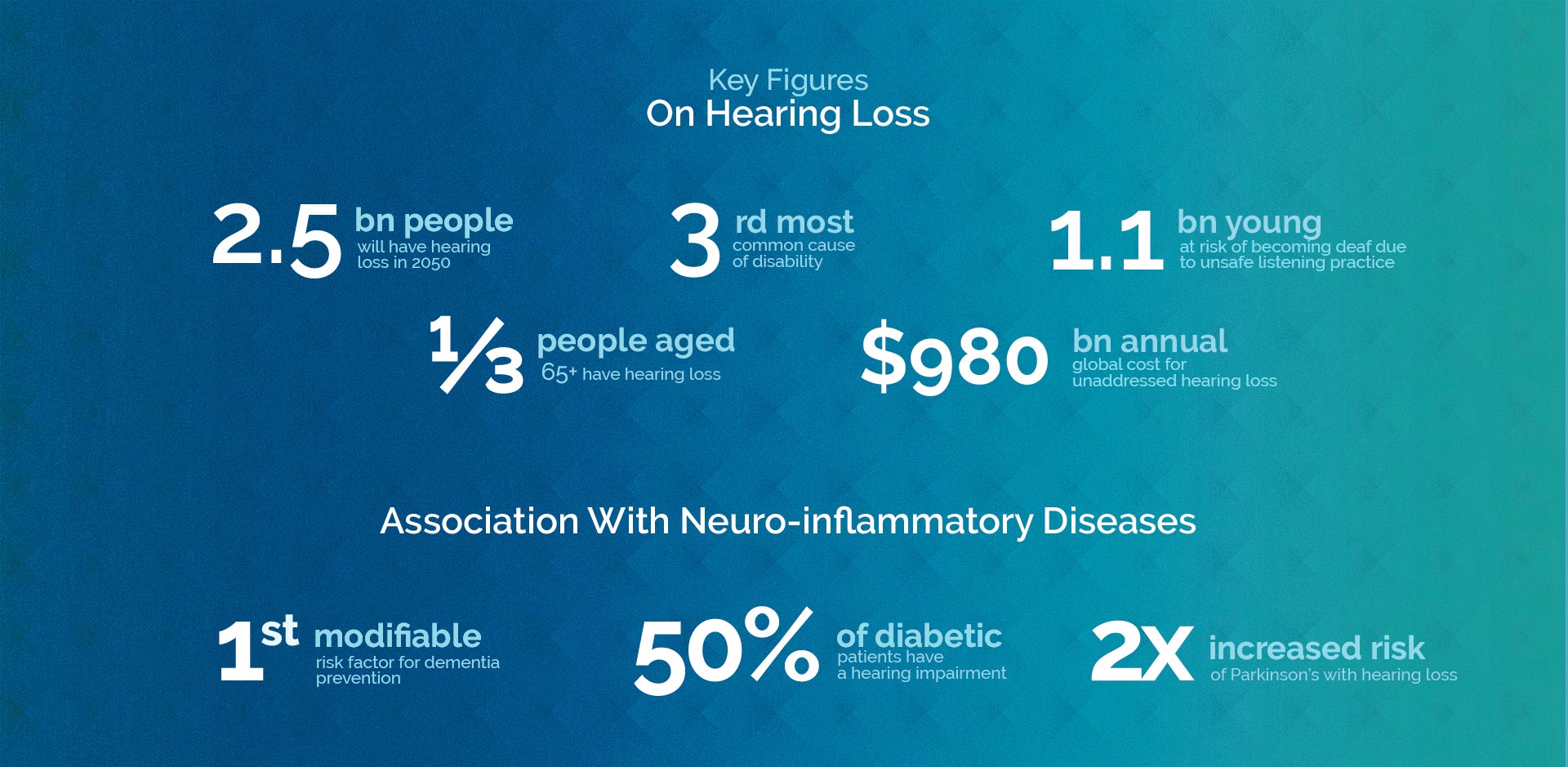hearing loss & aging connection
the escalating burden of hearing loss & its interrelation with age-related conditions
Hearing loss is a major global health issue affecting around 1.5 billion people worldwide.
Its incidence is undergoing a substantial surge: by 2050, a quarter of the global population will experience varying degrees of hearing deficiency. Primary drivers of this escalating crisis include an aging population, noise-induced damage from modern lifestyles and industries, the intake of ototoxic medications , and the increasing prevalence of chronic diseases associated with hearing loss.
Hearing loss has been ranked as the third highest cause of disability worldwide, higher than many other chronic diseases including diabetes, dementia, and chronic obstructive pulmonary disease. Deafness profoundly affects the quality of life of patients, impacting their ability to communicate, learn, and engage with the world around them.

Hearing impairments are strongly linked to cognitive decline in the elderly and have been ranked as the single largest potentially modifiable risk factor for preventing dementia. According to the latest clinical research, hearing impairments may be a primary pathology in Alzheimer’s as well as other neurological and neuropsychiatric diseases including Parkinson’s, Huntington’s, schizophrenia and post-traumatic stress disorder.
Hearing loss is also an important complication of diabetes: people living with diabetes are twice as likely to experience hearing impairments, and those with prediabetes have a 30% higher rate of hearing loss than those with normal blood sugar levels.
Unaddressed hearing loss costs countries an estimated US$ 1 trillion annually, therefore posing a significant issue to our health systems.
A hundred pharmaceutical and biotechnology companies and thousands of academic research institutions are contributing to scientific progress in the auditory field. A first otoprotective drug has been approved by the FDA to reduce risks of cisplatin ototoxicity. Some players have reported promising scientific results to treat sensorineural hearing loss and tinnitus. Gene therapy targeting mutations of the otoferlin gene has resulted in notable improvements in the hearing of children with profound hearing loss attributed to these mutations. These hold the promise of filling an unmet medical need and having transformative impacts on patient populations in the near future.
